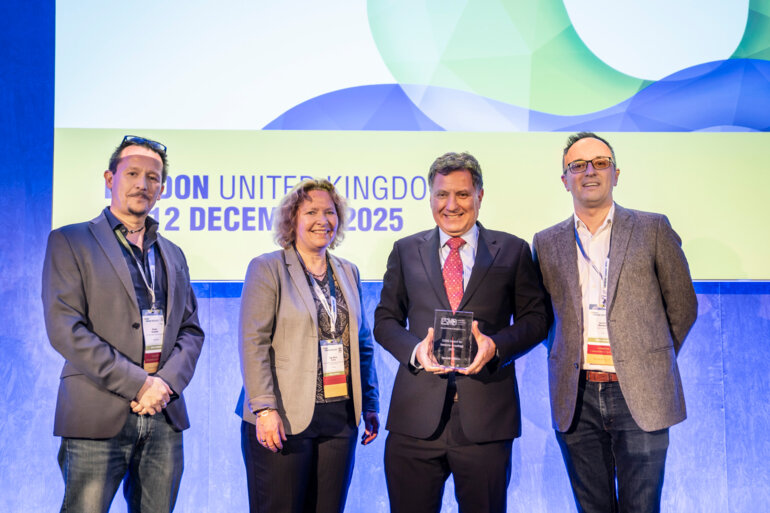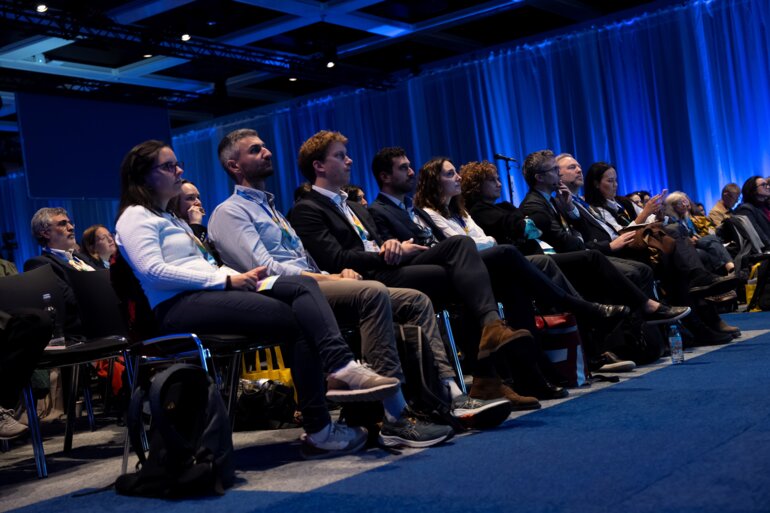The ESMO Congress 2021 has started today with three sessions on developmental therapeutics, including immunotherapy. The overarching theme in these sessions is the improvement of checkpoint inhibitor-based immunotherapy and a new flavour of synthetic lethality in molecularly pre-defined solid tumours.
The ESMO Congress 2021 has started today with three sessions on developmental therapeutics, including immunotherapy. The overarching theme in these sessions is the improvement of checkpoint inhibitor-based immunotherapy and a new flavour of synthetic lethality in molecularly pre-defined solid tumours.
We have been awaiting the therapeutic targeting of the inhibitory checkpoint molecule B7-H3 for some time, and the new B7-H3 antibody–drug conjugate, DS-7300, represents high hopes for this approach, with a response rate of 23% and good tolerability in unselected patients with advanced cancer. Switching macrophages toward an anti-inflammatory M1 phenotype is another promising strategy that has finally brought some success with the novel anti-Clever-1 antibody, bexmarilimab. Investigators found intriguing single-agent activity with disease control rates of 30% in patients with advanced melanoma, gastric cancer, cholangiocarcinoma and hepatocellular cancer. HPV-associated malignancies are known to show limited responses to checkpoint inhibitors, but the bifunctional fusion protein bintrafusp-alfa that co-targets PD-L1 and TGF-β, is suggested to bring substantial progress, with a median duration of response of more than 17 months in 75 pre-treated patients with HPV-associated tumours. Mesothelin-expressing solid tumours, such as mesothelioma, ovarian and cholangiocellular cancer in turn showed encouraging responses to the anti-mesothelin T-cell receptor fusion construct gavo-cel (gavocabtagene autoleucel), with a disease control rate of 92%. Finally, a success story for difficult-to-treat, relapsed high-grade neuroblastoma – a tumour entity expressing surface GD2 that offers a specific target for cancer therapy. The anti-GD2 antibody naxitamab showed a high response rate of 58% with a manageable toxicity profile in patients with relapsed high-risk neuroblastoma.
Finally, there was also potential ground-breaking progress for patients with ARID1A-deficient solid tumours with the oral ataxia telangiectasia and rad3 related (ATR) kinase inhibitor ceralasertib showing intriguing single-agent activity with radiological responses in 20% of patients, including ongoing complete responses. This is an emerging case of synthetic lethality, and deficiency in ARID1A is a pretty common genetic alteration in gynaecological, gastric, squamous-cell lung and colon cancers. We are experiencing exciting times to bring all these new treatments to cancer patients with the highest medical need.






